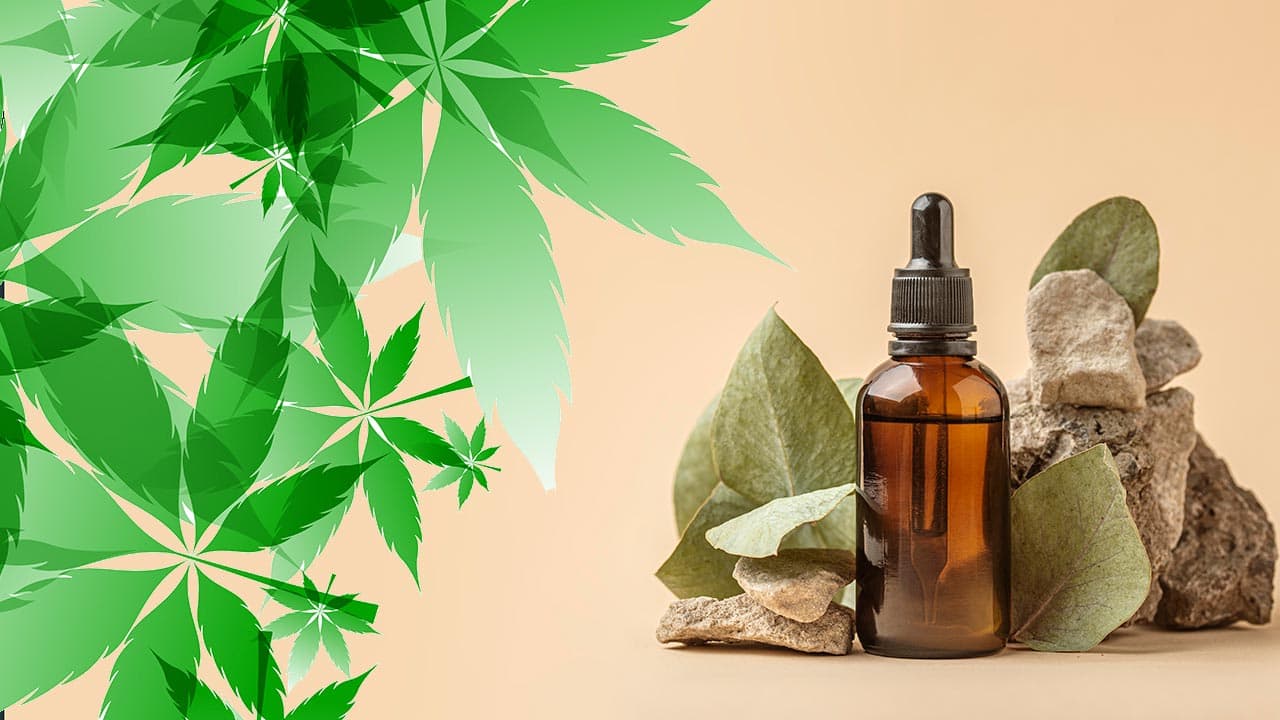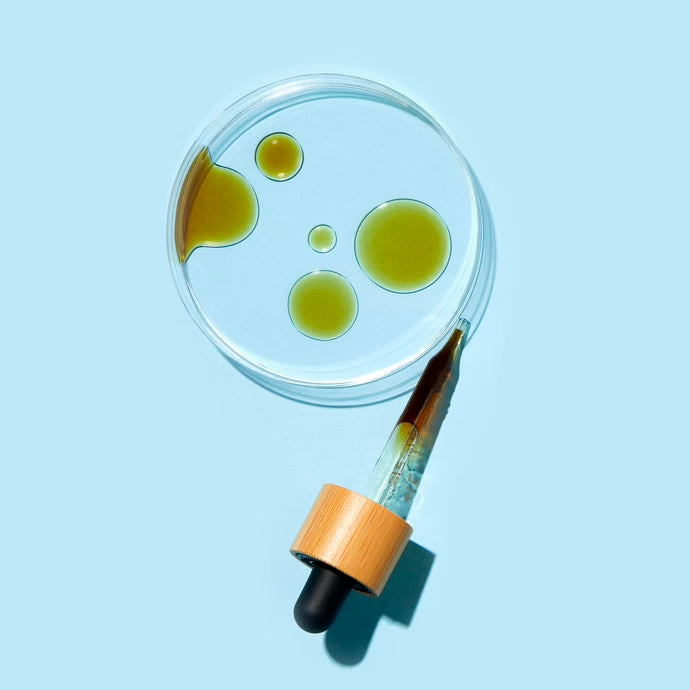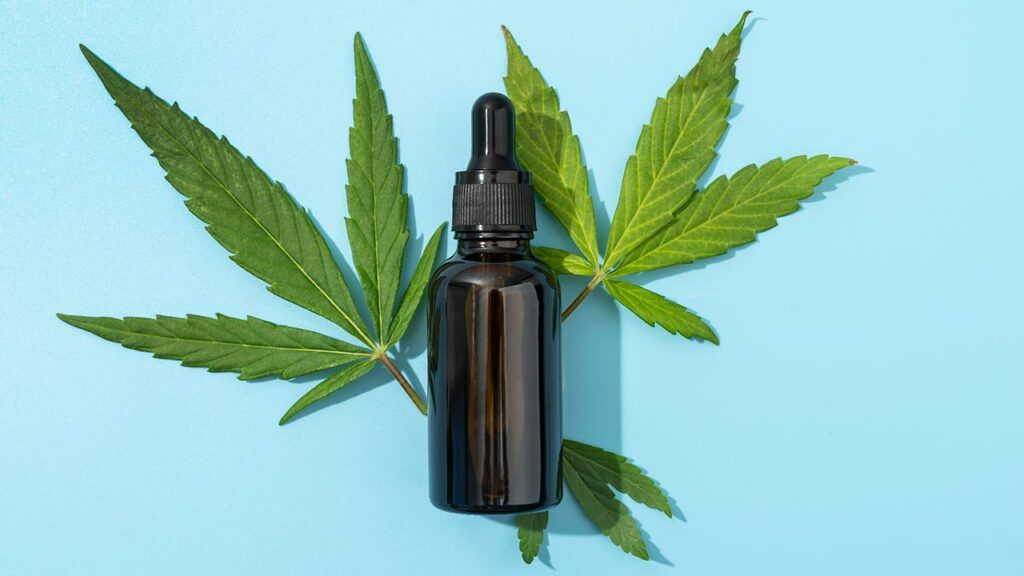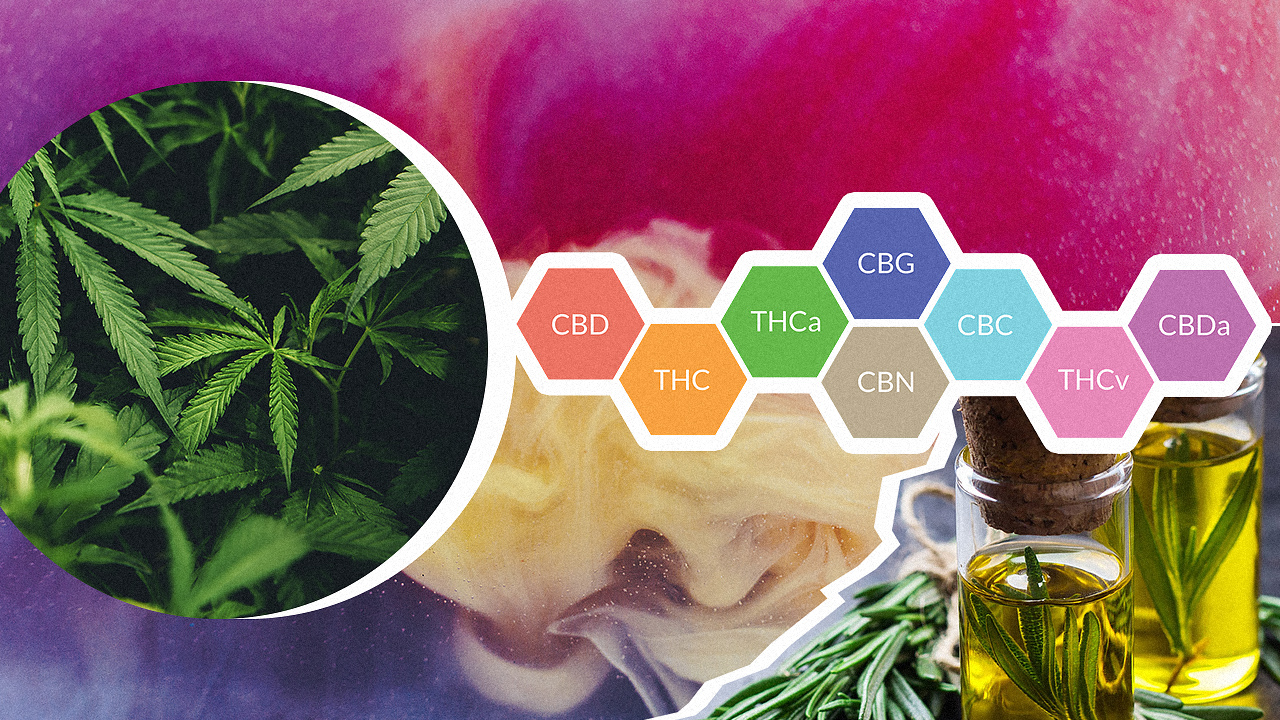The Entourage Effect: How Do Cannabinoids Work Together?
Summarize

You may have heard of the entourage effect if you take CBD oil. The entourage effect is a theory that the many compounds in the cannabis plant work together to create a more effective impact when they are consumed at the same time. The main compounds involved are the major and minor cannabinoids and terpenes. The entourage effect that cannabinoids and terpenes may produce is under study because of the potential therapeutic value of such an effect.

TL;DR (Too Long; Didn’t Read):
The entourage effect is a theory that the cannabinoids and terpenes in the cannabis plant work together to create a greater effect than they do alone. The CBD full spectrum entourage effect would be the greatest because the CBD oil includes 0.3% or less THC and CBD, minor cannabinoids and terpenes. Research on the entourage effect is ongoing because of the potential for CBD and minor cannabinoids to provide therapeutic effects when working synergistically.
Table of Contents
What Does the Entourage Effect Mean?
What is the entourage effect? When you consume everything together, a complex process may take place in which the major and minor cannabinoids, plus the terpenes and other plant compounds like flavonoids, work together to create synergy to have a more significant impact. The full spectrum entourage effect refers to the enhanced effect a full spectrum CBD product may produce because it includes all of the natural cannabinoids plus other compounds, like terpenes, found in the cannabis plant.
The industrial hemp plant (a type of cannabis plant) is specifically developed to have less than 0.3% THC. Taking full spectrum CBD means you get the benefits of a non-psychoactive amount of THC plus CBD at a particular potency and some of the other cannabinoids and terpenes.
Full spectrum CBD and broad spectrum CBD contain cannabinoids and terpenes. The main difference between the two is that broad spectrum CBD has been processed to remove the THC so that only a trace is left or the product is THC-free.
What Does the Entourage Effect Feel Like?
It is a difficult question to answer because each person responds differently to cannabinoids. You already regularly eat terpenes in fruits and vegetables, which are considered healthy. Hence, the theory is that the positive effects of consuming cannabinoids, believed to deliver wellness benefits, and terpenes simultaneously are intensified.
For example, if CBD for sleep helps you relax, the entourage effect would produce a greater feeling of relaxation. CBD would theoretically have more potential to ease the many symptoms of discomfort and tension.
Basics of the Cannabinoid System
To understand the entourage effect, you must first understand the basic cannabinoid system (ESC). The cannabinoid system is present throughout the body and regulates most of the body’s functions. They include immune system responses, sleep, appetite, temperature control, memory and learning. The system has two main cannabinoid receptors, which are CB1, found mostly in the brain, and CB2, found mostly in the immune system.
THC and CBD, the major cannabinoids, both modulate the cannabinoid system, but in different ways. THC binds to both CB1 and CB2 cannabinoid receptors, leading them to send out signals to achieve homeostasis (balance) in the body’s systems. CBD works differently. It does not bind. It interacts with CB1 cannabinoid receptors to fine-tune signaling triggered by THC or the natural endogenous cannabinoids (endocannabinoids). It does not cause signaling; it influences signaling.

Minor Cannabinoids are Not So Minor
CBD and THC are major cannabinoids, but there are other cannabinoids present in the hemp plant in lesser amounts. They are called minor cannabinoids, making people think they have little impact when they consume CBD oil. Increasingly, researchers are finding that minor cannabinoids may significantly impact the body because of the entourage effect that cannabinoids produce.
Researchers are finding that minor cannabinoids have unique properties. There are at least 120 minor cannabinoids in the cannabis sativa plant, the plant from which CBD is extracted. Though a cannabis plant, it is specifically cultivated to have less than .3% THC and is called industrial hemp to distinguish it from cannabis indica, which is the cannabis plant source for THC.
When CBD oil is extracted from the hemp plant material, minor cannabinoids are also extracted. They include CBG, CBC, CBN, and many others. The following are examples of the effects researchers have studied.
- CBG is called the parent cannabinoid because enzymes convert it to THC and CBD in the plant. CBG is believed to have strong antibacterial properties.
- CBC is an abundant phytocannabinoid, and studies suggest that it may help with relief.
- CBN is believed to have potential immunosuppressive properties through binding to the CB2 receptor.
These are just a few of the cannabinoids that are present in the hemp plant.

The cannabis plant’s minor cannabinoids are proving through research to act as agonists and antagonists at various receptors, including the CB1 and CB2 receptors, which are CBD and THC’s primary targets. Other receptors impacted by minor cannabinoids are the serotonin (feel-good) receptors and TRP receptors (regulate mediators and more). Researchers have found that minor cannabinoids activate multiple cell signaling pathways. Due to synergistic activity, they may provide the basis for the studied therapeutic actions, like treating skin disorders.
Terpenes May Play a Role
The hemp plant also has terpenes, compounds responsible for a plant’s aroma and influencing flavor. The naturally occurring terpenes exist in abundance in the cannabis plant. They are not cannabinoids, but they may have similar effects to some cannabinoids.
For example, a 2021 study found terpenes may increase cannabinoid activity, meaning there could be an entourage effect that terpenes induce, in which unique outcomes are produced when cannabinoids and terpenes are taken together as opposed to taking either alone. The scientists found that terpenes did act on the endocannabinoid system in the brain, and one of the effects was relief.
Natural Cannabinoids and Terpenes Are a Healthy Choice
Scientifically speaking, the entourage effect remains a hypothesis. However, an increasing amount of research shows the potential health benefits of cannabinoids and terpenes through the entourage effect. Cannabinoids and terpenes are natural compounds that give them an advantage over synthetic compounds. The fact that CBD and other cannabinoids are part of nature’s bounty is a significant reason people try CBD oil products to address specific health issues or to maintain general well-being.
Sources
- https://www.health.harvard.edu/blog/the-endocannabinoid-system-essential-and-mysterious-202108112569
- https://projectcbd.org/science/cbd-the-endocannabinoid-system/
- https://www.openaccessgovernment.org/cbg-the-mother-of-all-cannabinoids-with-broad-antibacterial-activity/95824/
- https://www.ncbi.nlm.nih.gov/pmc/articles/PMC6932936/
- https://pubchem.ncbi.nlm.nih.gov/compound/Cannabinol
- https://www.ncbi.nlm.nih.gov/pmc/articles/PMC8669157/
- https://www.nature.com/articles/s41598-021-87740-8
Share this post


0